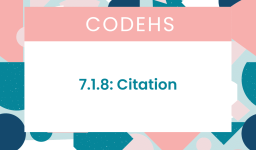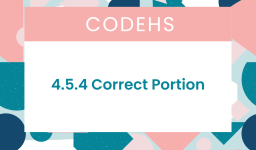The most common answer is:
fill in the citation function to return the author’s name in the correct format
author_name = (“Martin”, “Luther”, “King, Jr.”)
def citation(author_name):
return (author_name[-1] + “, ” + author_name[0] + ” ” + author_name [1])
print (citation(author_name))This function citation is meant to format the author’s name in a specific citation style, where the last name comes first, followed by a comma, and then the first and middle names. Since the author’s name is provided as a tuple author_name = (“Martin”, “Luther”, “King, Jr.”), the function should correctly handle the formatting, including the suffix “Jr.” if present.
Given the tuple, we want the output to be “King, Jr., Martin Luther.” To achieve this, considering the suffix part of the last name, the code needs to concatenate the elements of the tuple appropriately:
author_name = ("Martin", "Luther", "King, Jr.")
def citation(author_name):
# Assuming the last element might contain suffixes like "Jr."
return author_name[2] + ", " + author_name[0] + " " + author_name[1]
print(citation(author_name))
However, based on the initial instruction and the function implementation you provided, if you intend for the output to simply place the last name (including any suffixes) before the first name and middle initial without specifically formatting the suffix, the given function already does this correctly but just needs proper ASCII quotation marks for Python syntax:
author_name = ("Martin", "Luther", "King, Jr.")
def citation(author_name):
return (author_name[-1] + ", " + author_name[0] + " " + author_name[1])
print(citation(author_name))
This corrected version also outputs “King, Jr., Martin Luther” assuming the last element of the tuple is treated as the entire last name. If the format “King, Martin Luther, Jr.” is preferred, you’d adjust the concatenation to include the suffix at the end properly.



